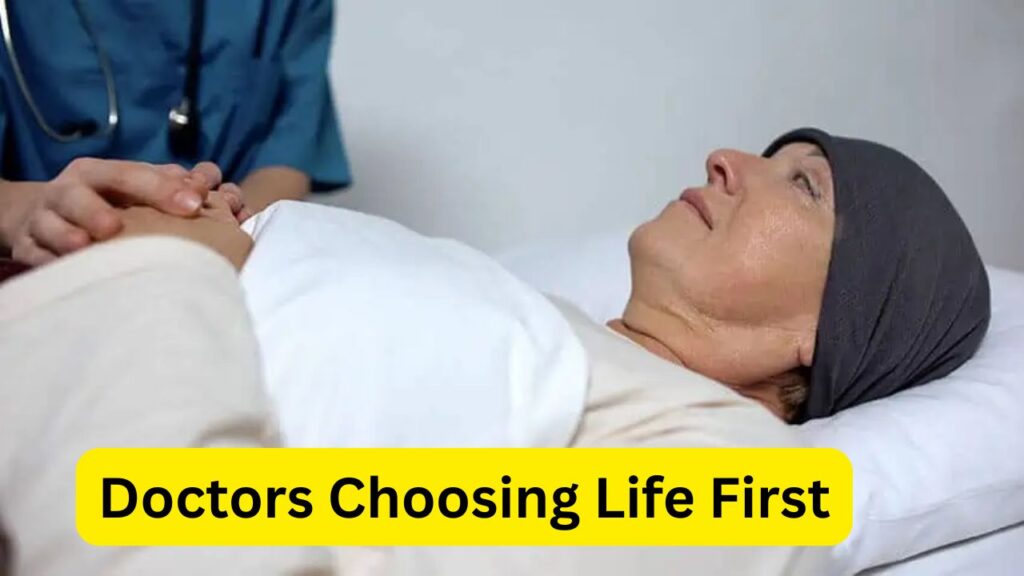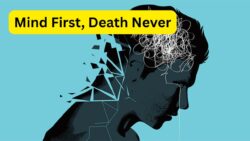Stories That Change Minds – In recent years, the debate around euthanasia has become one of the most divisive topics in modern medicine. While some view euthanasia as an act of compassion and personal choice, many doctors continue to oppose it due to ethical, moral, and professional reasons. This article explores why a significant number of medical professionals resist the legalization of euthanasia, highlighting their perspectives on patient care, mental health, and the long-term consequences of such policies.

Why Many Australian Doctors Oppose Euthanasia
Many Australian doctors oppose euthanasia because it contradicts the fundamental medical principle of “do no harm.” Physicians believe their duty is to save lives, relieve pain, and provide care — not to intentionally end a life. Euthanasia raises complex ethical dilemmas, especially in cases where patients might be suffering from temporary depression or pressure from external influences. Doctors in Australia argue that improved palliative care and mental health support can provide relief without resorting to assisted dying. Their stance is rooted in protecting patient dignity, maintaining medical integrity, and ensuring compassionate care until the natural end of life.
Medical Ethics and Euthanasia Laws in Australia
The medical community has long debated whether euthanasia aligns with the Hippocratic Oath. For many doctors, assisting in a patient’s death directly violates this oath and erodes public trust in healthcare professionals. In states like Victoria and Western Australia, voluntary assisted dying (VAD) laws have been passed with strict guidelines, but ethical concerns remain. Opponents fear that legal euthanasia could expand beyond terminal illness cases, potentially normalizing the idea of ending life as a form of treatment. This ethical uncertainty makes many medical professionals hesitant to support euthanasia laws across Australia.
| Aspect | Doctor’s Concern |
|---|---|
| Ethics | Violates Hippocratic Oath and moral duty |
| Patient Pressure | Fear of influencing vulnerable patients |
| Trust | Could reduce public trust in healthcare |
| Palliative Care | More focus needed on pain management |
| Legislation | Risk of misuse and unclear guidelines |
The Psychological Impact of Euthanasia on Healthcare Workers
Euthanasia not only affects patients and families but also deeply impacts healthcare professionals involved in the process. Studies show that doctors who participate in assisted dying may experience emotional distress, moral injury, and long-term guilt. Many physicians express discomfort with being placed in a position to decide when a patient’s life should end. The psychological toll of such decisions has led many medical associations to call for stronger counseling and ethical review frameworks before any euthanasia procedures are performed. For these reasons, numerous doctors prefer focusing on palliative and emotional care instead of life-ending interventions.
Balancing Compassion and Medical Responsibility
While supporters of euthanasia argue it provides dignity in death, opponents believe true compassion lies in extending life with quality, not ending it. Doctors emphasize that medicine should focus on healing and emotional support. They call for increased funding for palliative care and better mental health systems to ensure patients never feel euthanasia is their only option. Ultimately, balancing compassion with responsibility remains one of the greatest ethical challenges in modern healthcare.
Frequently Asked Questions (FAQs)
1. Why do many doctors oppose euthanasia?
Many doctors believe euthanasia violates their moral and professional duty to preserve life.
2. Are there euthanasia laws in Australia?
Yes, some Australian states like Victoria and Western Australia have legalized voluntary assisted dying under strict conditions.
3. What is the main ethical concern with euthanasia?
The main concern is that it contradicts the medical principle of “do no harm” and can erode trust in doctors.
4. What alternatives do doctors suggest instead of euthanasia?
Doctors recommend expanding palliative care, mental health support, and pain management options for patients.




